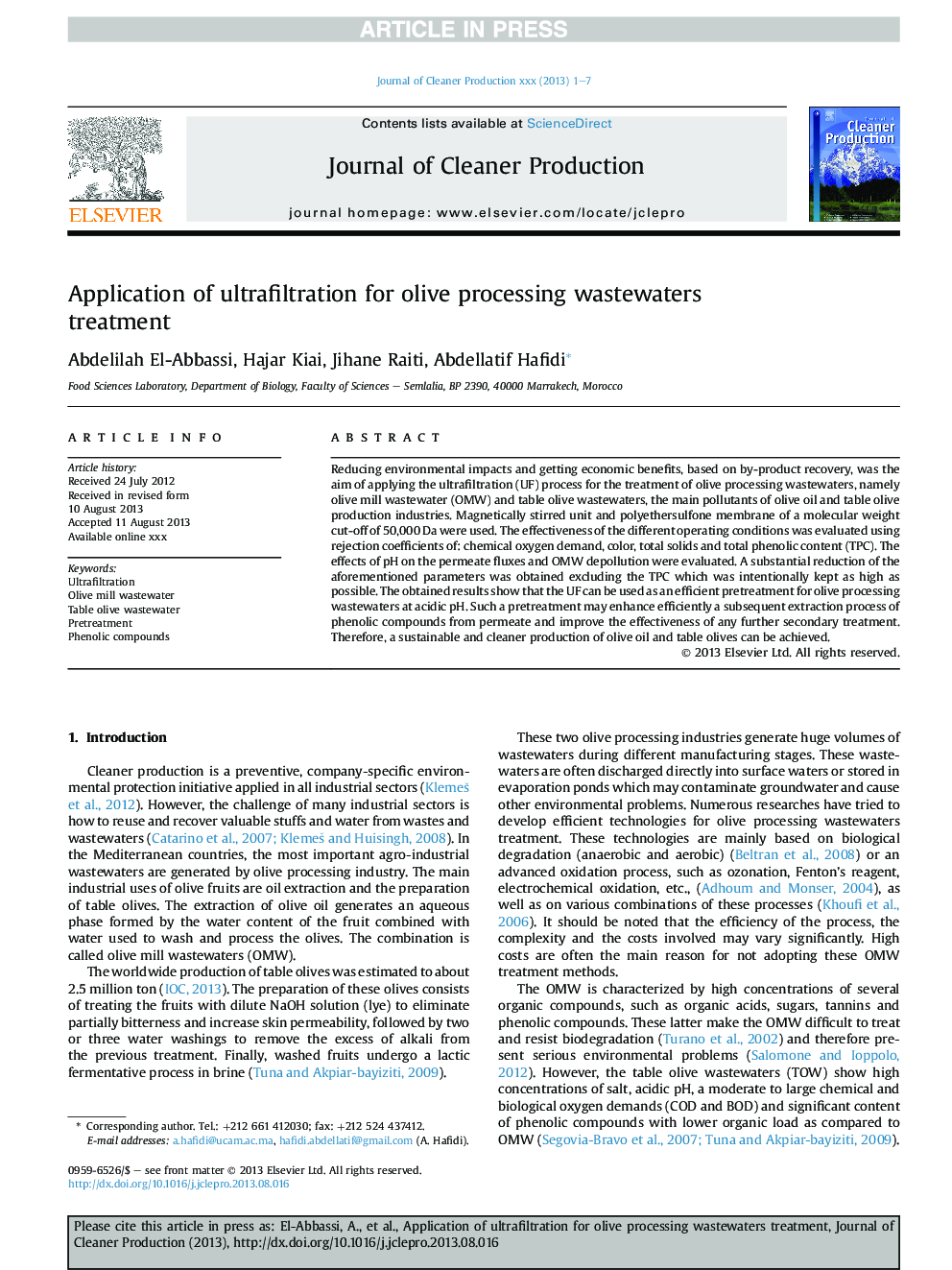| Article ID | Journal | Published Year | Pages | File Type |
|---|---|---|---|---|
| 8107027 | Journal of Cleaner Production | 2014 | 7 Pages |
Abstract
Reducing environmental impacts and getting economic benefits, based on by-product recovery, was the aim of applying the ultrafiltration (UF) process for the treatment of olive processing wastewaters, namely olive mill wastewater (OMW) and table olive wastewaters, the main pollutants of olive oil and table olive production industries. Magnetically stirred unit and polyethersulfone membrane of a molecular weight cut-off of 50,000Â Da were used. The effectiveness of the different operating conditions was evaluated using rejection coefficients of: chemical oxygen demand, color, total solids and total phenolic content (TPC). The effects of pH on the permeate fluxes and OMW depollution were evaluated. A substantial reduction of the aforementioned parameters was obtained excluding the TPC which was intentionally kept as high as possible. The obtained results show that the UF can be used as an efficient pretreatment for olive processing wastewaters at acidic pH. Such a pretreatment may enhance efficiently a subsequent extraction process of phenolic compounds from permeate and improve the effectiveness of any further secondary treatment. Therefore, a sustainable and cleaner production of olive oil and table olives can be achieved.
Related Topics
Physical Sciences and Engineering
Energy
Renewable Energy, Sustainability and the Environment
Authors
Abdelilah El-Abbassi, Hajar Kiai, Jihane Raiti, Abdellatif Hafidi,
